|
|
ADDRESS DURING THE INAUGURATION OF THE REGIONAL CONFERENCE OF THE SOUTH ASIAN CHAPTERS OF TRANSPARENCY INTERNATIONAL INDIA, NEW DELHI
25-11-2005 : New Delhi
Possible Solutions for Transparent Society
I am delighted to participate in the inauguration of the Regional Conference of the South Asian Chapters of Transparency International India. I am happy that the Transparency International India has taken the initiative of arranging this Conference in India, which will give very useful suggestions for improving the governance system. This will also enable maximization of value addition for a given expenditure incurred by the Government in providing the services to the citizens. My greetings to Admiral Tahliani and his team, the social reformers, intellectuals, students and other delegates participating in the conference. I particularly greet Prof (Dr.) Peter Eigen and the International delegates for participating in this Conference and sharing the thoughts on the strategies to be followed for promoting a transparent society. I would like to discuss on the topic "Possible solutions for transparent society".
It has following components:
1. Transparency starts at home
2. Mission of the teacher
3. Elevating the young minds
4. Code of conduct
5. Trust and confidence in Governance
6. Elimination of Poverty
7. e-Governance for transparent
Administration
8. Some good examples in Governance
9. Need based services
a. Training and empowerment
b. Law enforcement
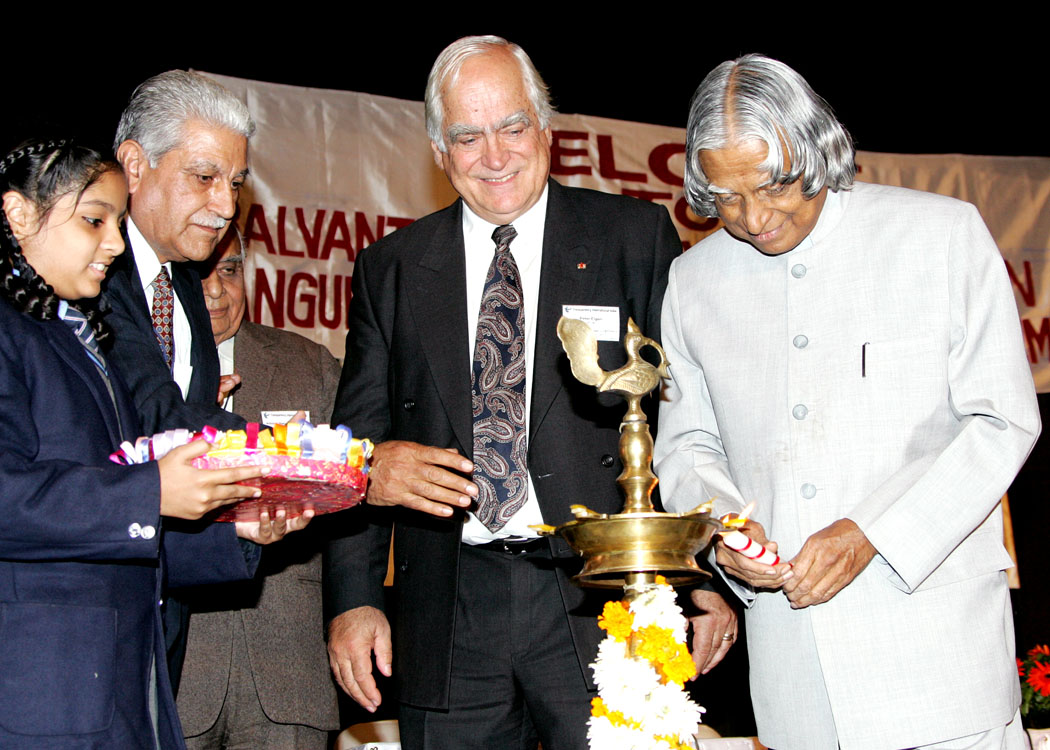

1. Transparency starts from Home
On 21st November 2005, I had visited Adhichunchanagiri Math, attended a function of FUREC (Foundation for Unity of Religions and Enlightened Citizenship) and interacted with over 54,000 students of various schools and colleges of Karnataka. There a 10th class student Ms. M. Bhavani studying in Adichunchanagiri Composite High School, Sharavathy Nagar, Shimoga asked me the following question.
"Dear Sir, What is the role of students to stop corruption which is deeply rooted in our county just like cancer?"
Agony of the young mind is reflected in this question. For me it was an important question, since it come from a young mind. I was thinking what type of solutions we could give. My thought process was the following:
I said there are one billion people in the country and nearly 200 million homes. In general there are good citizens everywhere. However, if we find that people in few million houses are not transparent and not amenable to the laws of the country, what can we do? These houses apart from parents have one daughter or one Son or both. If the parents in these houses are deviating from the transparent path the children can use the tool of love and affection and correct the parents to come back to the right path. I asked all the children assembled in that gathering, in case parents of few children get deviated from transparency, will you children boldly tell your parents, father or mother, you are not doing the right thing, that is what we are taught by you and in the school. Most of the children spontaneously responded, "We will do it". The confidence comes from them that they have love as a tool. Similarly I have also asked the parents in some other meeting, initially there was a silence, later, many of them hesitantly agreed that they would abide by the children's suggestion since it is driven by love. They took an oath from me. The oath was "I will lead an honest life free from all corruption and will set an example for others to adopt a transparent way of life". Finally I told the students that they should start a movement starting from their home.


2. Mission of the Teacher
School is the next important environment where the character is getting shaped. The prime learning period for the children is five to seventeen years of age. The student spends approximately 25,000 hours in the school campus. Of course, at home, love and affection are imparted but again most of the time of the day is spent in preparing school's homework and study, eat, play and sleep. Hence the school hours for children are the best time for learning and need best of environment, mission oriented learning with value system. I still hear the echo from Bestolozzy, a Greek teacher's saying, "give me a child for seven years. Afterwards, let the God or devil take the child. They cannot change the child." That is the great confidence of the teacher. What a golden mission for the teachers of great character and value system in our schools in the country!

3. Elevating the young minds
While I was in college, I remember the lectures given by highest authority of the Jesuit institution Rev Father Rector Kalathil of St. Joshep's college, Trichirappalli, Tamilnadu. Every week on Monday, he will take class for an hour. He used to talk about good human beings, present and past, and what makes a good human being. In this class he used to give lectures on personalities such as Buddha, Confucius, St. Augustine, Califa Omar, Mahatma Gandhi, Einstein, Abraham Lincoln including some scientific personalities and moral stories linked to our civilizational heritage. He also used to talk about great personalities living in the father's lodge and who had made contribution with values in the service of the people. It is essential in the secondary schools and colleges to arrange a lecture by a great teacher of the institution once in a week for one hour on India's civilizational heritage. This class can be called as a Moral Science Class. That will elevate the young minds to love the country, to love the other human beings and elevate the young to higher planes.
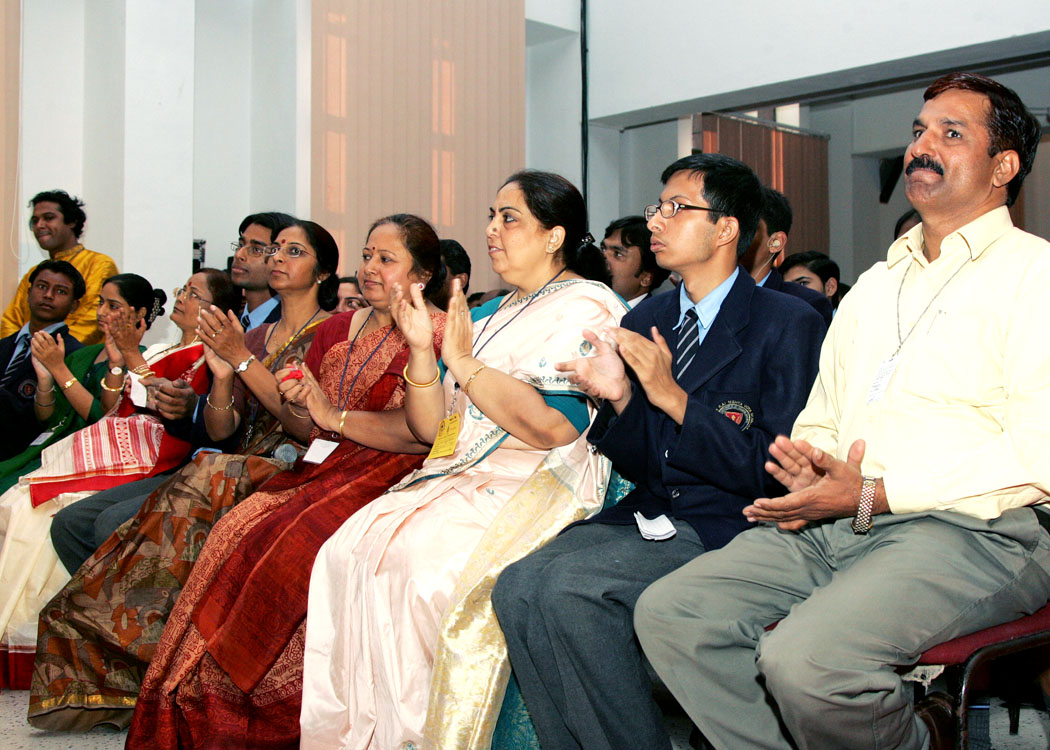

4. Code of Conduct
Now I am reminded of Tamil classic, which brings out the power of righteousness and provides the code of conduct for the people in high and responsible positions:

It means, people who are in high and responsible positions, if they go against righteousness, the righteousness itself will get transformed into a destroyer. Whoever deviates from righteousness, whether they are individual or states, they are responsible for their own actions. This message is brought out very clearly by the Elangovadikal in Silapathikaram. Silapathikaram is one of the five great epics written nearly 2000 years ago in Tamil language. So far I have been talking about the strategies needed for creation of enlightened citizens and transparency in the youth phase. Now I would like to discuss the Governance and delivery mechanism for the people, which is one of the requirements of the democratic system.
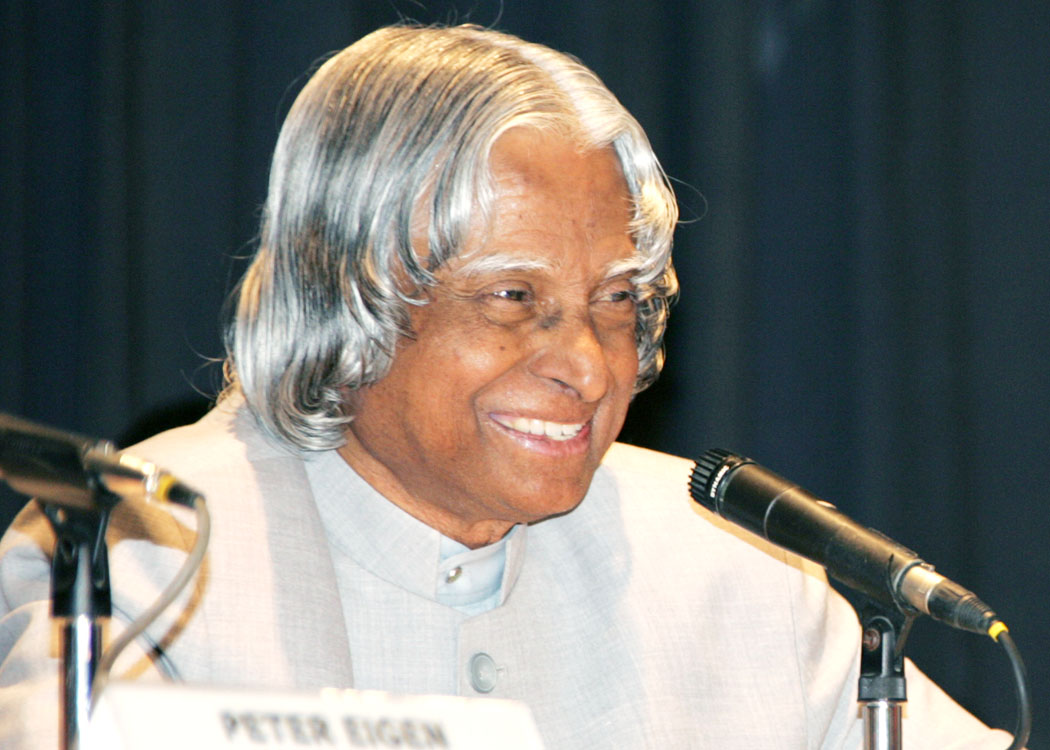

5. Trust and confidence in Governance
As a part of governance, the Government needs to provide multiple facilities and services to the people. Also, these services are required to be constantly upgraded with the use of technology for fulfilling the aspirations of the people. The Government budgets and expends a large amount of funds for fulfilling this goal. The money for the work comes from people through taxes. It is the money collected from the people, which is being spent for the benefit of all the people and particularly the needy. However, when it comes to reaching of the benefits to the common man, the value of the services, which reaches the citizen, is much below the expected level of satisfaction. This happens in all the services namely education, healthcare, sanitation, water, power, road, drainage, tele-communication, seeking of loans from the banks for agriculture and small-scale industries and many other areas of societal importance. Even to make the timely payment for certain services the citizens have to struggle and sometimes pay bribes to make the payment.
The Government is responsible for bringing the smiles on the faces of billion people by enacting appropriate policies, laws and facilitating societal transformation. Management style varies naturally with the policies and procedures, which are mostly based on mistrust and distrust. As a result, motivation and empowerment, at the implementation levels are dampened and suppressed, whereas Indian people have shown enormous resilience and have achieved phenomenal success when provided with an environment of trust and confidence in the working space. Whenever there has been a programme run on mission mode through a specially conceived management structure we have been realizing very satisfactory results whether in government, quasi-government or private. We have examples that even for governance related items; there are models where a focused mission mode operation has helped. Recently, we saw such a mission mode operation. Now, let us look at our national challenges.

6. Poverty removal
Our nation is going through a major challenge of uplifting of 260 million people who are below the poverty line. They need habitat, they need food, they need health care, and they need education and employment finally resulting in a good life. Our GDP is growing at more than 7% per annum. Whereas, the economists suggest that to uplift the people below poverty line, our economy has to grow at the rate of 10% per annum consistently, for over a decade.
Integrated Action for Development: To meet the needs of one billion people whose number will further increase, we have a mission of transforming India into a developed nation. We have identified five areas where India has core competencies for integrated action: (1) Agriculture and food processing (2) Reliable and Quality Electric power, Surface transport and Infrastructure for all parts of the country. (3) Education and Healthcare (4) Information and Communication Technology (5) Strategic sectors. These five areas are closely inter-related and when effectively addressed, would lead to food, economic, energy and national security.
Implementation of these programmes in an integrated way and in a time bound manner in a cost effective fashion and also to provide the necessary services to the citizens equitably with ease, it is essential that we use the technologies available today and work out a comprehensive e-governance system for all government to government and government to citizens transactions.
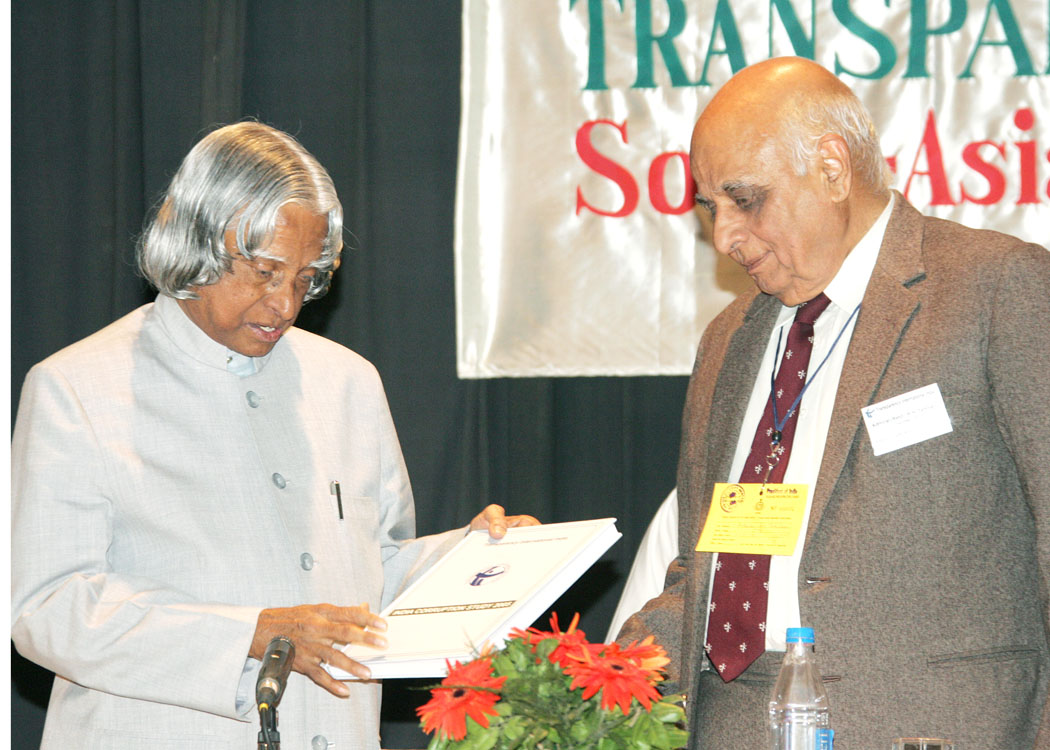
Collective Introspection to meet the challenges:Indian democracy has been functioning effectively for the last six decades. In a vibrant democracy we have accomplished many successful missions by many governments. We have brought down the poverty level to 26% with the growing population and today India is one of the emerging strong economies of the world because of our limited opening up of our economy in the post 1991 period. However, our growth rate is slow. The causes attributed for this slow growth rate are the administrative system, large accumulation of pending cases in our courts, the number of controls exercised by the administrative system and the government running many of economic activities rather than opening it up to the specialists in a competitive environment. In spite of these severe constraints, our youth have excelled in knowledge domain and have shown a phenomenal growth in ICT sector employing over one million people and have achieved the revenue target of $28 billion in 2004. In the same way, service sector has achieved 7.6% of annual growth for the last decade whereas agriculture and manufacturing sector have shown slow growth rate. This gives us an idea that wherever there is an independence to perform we have performed well whereas wherever we have created large amount of dependency through complex policies, procedures and subsidies, our performance has been stunted and transparency diminishes. There is a need to introspect on this dependency syndrome, which we have created. We need to remove these dependencies systematically and allow the people to perform in a competitive environment in the global market. This will involve reformulation of polices and procedures prevalent in the legislature, executive and judiciary keeping in mind the changing scenario of the world, challenges to be faced by the economic sector in the global competitive environment and meeting the aspirations of the people in providing a higher quality of life. All Government programmes must consider citizen as a privileged customer and become accountable for providing all the services needed by him without interruption and hassles. One of the means by which this can be ensured is the incorporation of a sound e-governance system in all the three pillars of the democracy. Keeping this aspect in mind, I would like to share the thoughts on implementation of e-Governance system for providing transparent administration.

7. E-Governance for transparent administration
Good governance is being recognized as an important goal by many countries across the world. They have taken up specific initiatives for open government. Freedom of information is being redefined and supported by detailed guidelines. The Internet revolution has proved to be a powerful tool for good governance initiatives and the world is moving towards Internet governance. An important dimension of the Internet potential is the possibility of providing services any time anywhere. Along with this there is a conscious effort to put the citizen as the center of focus of the governance. Citizens are being perceived as customers and clients. E-governance has to be citizen friendly. Delivery of services to citizens is considered as a primary function of the government. Particularly in a democratic nation of a billion people like India, e-Governance should enable seamless access to information and seamless flow of information across the state and central government in the federal setup.
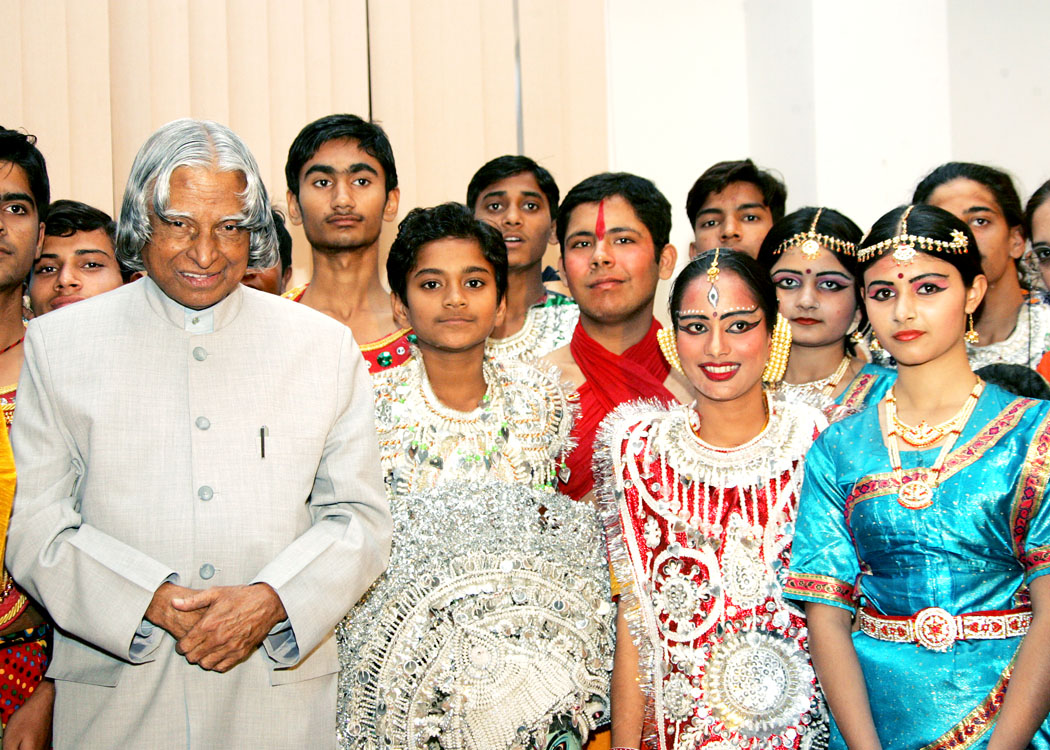
Typical scenario: I visualize an election scenario, where a candidate files his nomination from a particular constituency. Immediately the election officer verifies his/her authenticity from the national citizen ID database through multifactor authentication, through a multipurpose Citizen ID card. His education credentials come from the school or university records. His track record of employment comes from various employers with whom he had worked. His income and wealth resources come from the income-tax department, and other sources. His property record comes from the registration of land authority across the country. His credit history comes form various credit institutions like banks. His/her civic consciousness and citizenship behaviour comes from the police crime record. His legal track records come from the judicial system.
All the details arrive at the computer terminal of the election officer within a few seconds automatically by the act of e-Governance software agents which crawls across the various state and central government web services directories through the network GRID and collects the information automatically and presents the facts in real-time with out any bias. Artificial intelligence software analyses his credentials and gives a rating on how successful he will be as a politician. Election officer sitting at the remote block of the country decides on the spot and the election process starts. All the voters vote from their home through virtual polling booths. Is it a dream? Is it possible? If possible, when shall we have it? Can we provide good governance to our one billion people? Can the governance speed up the delivery system? Can the governance differentiate between genuine transactions and spurious transaction? Can the governance ensure immediate action for the genuine cases, which satisfies the checklist for a particular service and pend, the action on spurious transactions? Can this be done by e-governance at a cost affordable by our nation? If we have this system implemented then I can call this as an ideal example of the effective e-Governance system for the citizen. E-Governance system is a means to an end. We need enlightened citizens to realize the full benefits of the e-governance systems. It is people who finally uphold ethics, morality and righteousness.

8. Some good examples
Now I would like to discuss some of the good practices followed in the three pillars of our democracy.
Legislative system: The passing of the Right to Information Act 2005, Right to Education Act, and the National Rural Employment Guarantee Act 2005 are some of the recent examples of the effective functioning of legislative system. These Acts are structured to fulfill the aspirations of our citizens particularly the poor.
Executive system: Some of the key accomplishments of the executive has been the time bound realization of the metro railway system in Delhi, limited e-governance implementation in certain States like Kerala, Gujarat and Andhra Pradesh bringing about substantial transparency in the provision of government to citizen services. A working validated model of railway reservation system, virtual university initiative of the three old universities of the country namely Madras, Calcutta and Mumbai and the healthcare services of the Karnataka Government through Yeshaswini scheme are the other notable accomplishments of the executive which has positive impact on large number of citizens of the country.
Judicial system: There is a model available in Karnataka, where the Lokayukta has become pro-active in unearthing corruption and irregularities in various Government departments. Having the same powers as his counterparts in other States, he visits offices and hospitals to personally check on cases of irregularities and corruption. Due to the proactive action, I understand that Lokayukta has been able unearth property worth Rs.250 Crores which was amassed disproportionate to known sources of income.
The judgments of the Supreme Court and some High Courts are now available in the Internet. This step has considerably relieved the agony of the litigants and also enables others to use these judgments in their areas of interest. It is a giant leap. It is essential that all other Courts in the country also follow this model and that has to be enforced by the Law Ministry, State Govt and the higher judiciary. In addition to this, for example, the landmark judgment on the use of CNG, interlinking of rivers has large impact on the welfare of the society such as elimination of pollution in big cities and mitigating the miseries of the people from the flood and drought.
e-Governance Grid for transparent administration: Let me now describe my personal experience in setting up and operating a typical e-Governance Portal established at Rashtrapati Bhavan. Rashtrapati Bhavan has introduced connectivity with our citizens, institutions, universities, government departments and multi-lateral agencies during the last three years. For enabling such connectivity, all the important events in which the President participates are brought out in the website ( ) as soon as the functions are over. Today, on an average, this website has a hit rate of over two hundred and fifty thousand per day. On certain special occasions like Independence Day, Republic Day, it touches nearly a million hits. In addition, I receive over 500 e-mails and 500 letters on an average from various people from all over the country and abroad. I also receive 100's of questions from the students and children every day. We have built in an e-Governance system to study all the correspondence on a day to day basis, analyze, prioritize, verify and determine the action requirements to be taken by Rashtrapati Bhavan and other agencies of government and the relevant institutions both public and private. We have now established a near paperless dynamic and secured workflow system for the file movements. All the officers in Rashtrapati Bhavan are being connected through Wi-Max. We have a Fiber broad band POP (Point of Presence) that can connect up to 64 Mbps. We have established within Rashtrapati Bhavan facilities for G2G and G2C connectivity and we are in the process of establishing the high bandwidth broadband VPN connectivity with Central and State Governments and other relevant institutions for seamless flow of information within the existing systems and procedures of Governmental functioning. This is called the e-Governance GRID. We will soon have all the transactions between Rashtrapati Bhavan and various ministries; Central and State governments through this e-Governance GRID. Similarly, Central Government and State government should establish the e-Governance GRID at state, district, block and village level. This will ensure the transparency in the administrative delivery system and enable provision of quality service to the citizens.

9. Need based Services
a. Training and empowerment: Services like police; land administration, judiciary (lower courts) municipal services and income tax have been found to be the key problem areas by the Transparency International India. There is a need to train the personnel working in these services about the importance of providing hassle free services to the citizens. They should be specially trained to be citizen friendly. Personnel working in these departments must be provided with reasonable housing and transportation facilities including empowerment in their task. They should become accountable for the services to be provided to the citizens and also be penalized for wrong decision. We can also consider training the personnel at the grass root level in foreign countries so that they can get a first hand feel of how these services are being provided in different countries. These measures will improve the quality of services being provided to the citizens and the perception about these departments. Bureaucrat should become facilitators rather then officers.
b. Law enforcements: The following are the components, that influence transparent society: Corruption detection, Fast police action, Court proceedings with minimal adjournments, fast judgments and right to appeal restricted to a minimum level and also there must be provision for punishing the biased allegation bringing the accountability into the system. All these process should be completed with in a prescribed time frame and all the pending cases in the court particularly pertaining to corruption should be cleared in a time bound manner using a special tribunal.

Conclusion
Conscience is the light of the Soul that burns within the chambers of our psychological heart. It is as real as life is. It raises the voice in protest whenever anything is thought of or done contrary to the righteousness. Conscience is a form of truth that has been transferred through our genetic stock in the form of the knowledge of our own acts and feelings as right or wrong.
A virtuous and courageous person can alone use the instrument of conscience. He or she can alone hear the inner voice of the soul clearly. In a wicked person this faculty is dead. The sensitive nature of his / her conscience has been destroyed by sin or corruption. Hence he or she is unable to discriminate right from wrong. Those who are leading organizations, business enterprises, institutions and governments should develop this virtue of the ability to use their own conscience. This wisdom of using the clean conscience will enable them to enjoy the freedom and remove their anxiety and worries. In this connection, I would like to recall the hymn that I have heard in a spiritual centre. It reads as follows:
Righteousness
Where there is righteousness in the heart,
There is beauty in the character.
When there is beauty in the character,
There is harmony in the home.
When there is harmony in the home,
There is order in the nation.
When there is order in the nation,
There is peace in the world.
It is a beautiful connectivity between heart, character, home, nation and the world. In a society we have to build righteousness among all its constituents. For the society as a whole to be righteous we need creation of righteousness in family, righteousness in education, righteousness in service, righteousness in career, righteousness in business & industry, righteousness in civil administration, righteousness in politics, righteousness in government, righteousness in law and order, righteousness in justice.
Friends, the report of Transparency International India indicates that the level of missing transparency in various transactions. I have answered how we can evolve an enlightened citizen from a child to grown up and an organisation, who will eventually be an instrument of transparency.
My best wishes for success in your deliberations in the mission of helping the society to have good citizens.
May God bless you.
<<Back
|
|